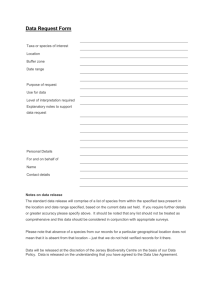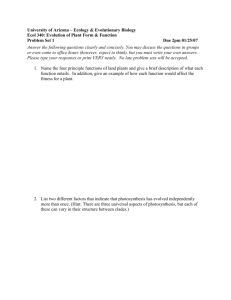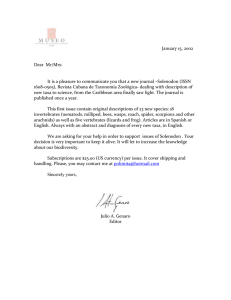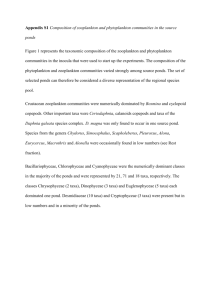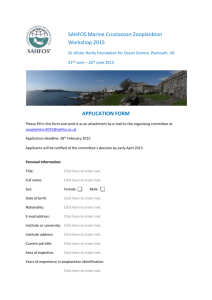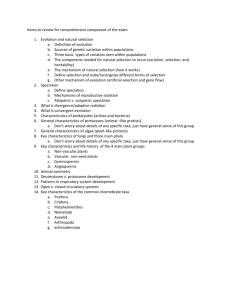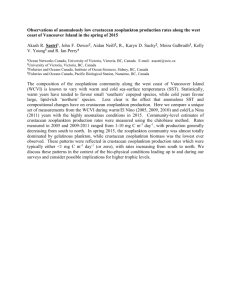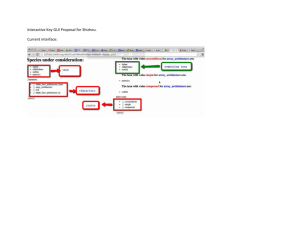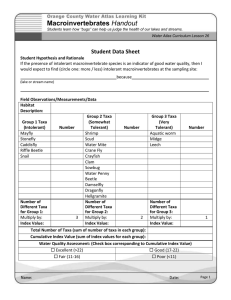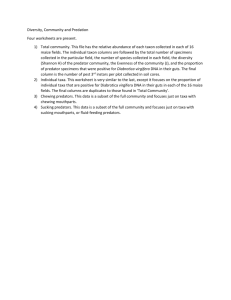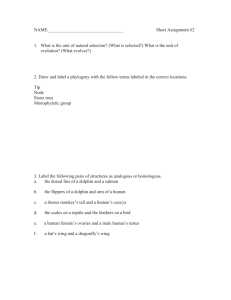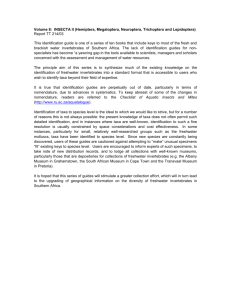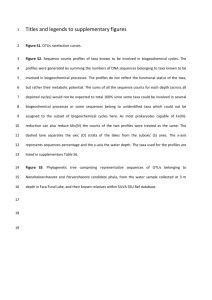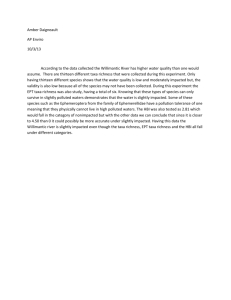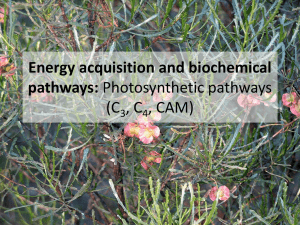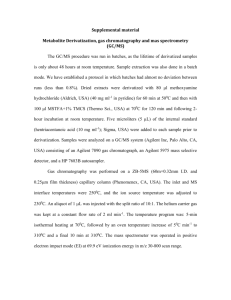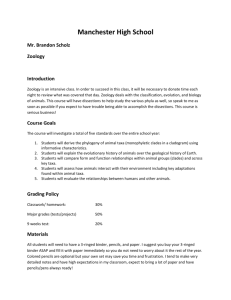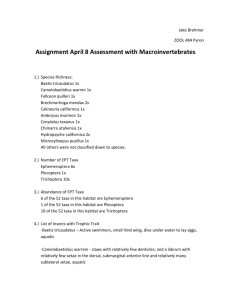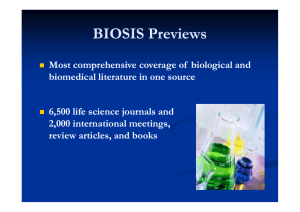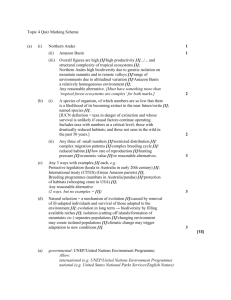10631_Keister-ed-BIO-P_S6hpb
advertisement
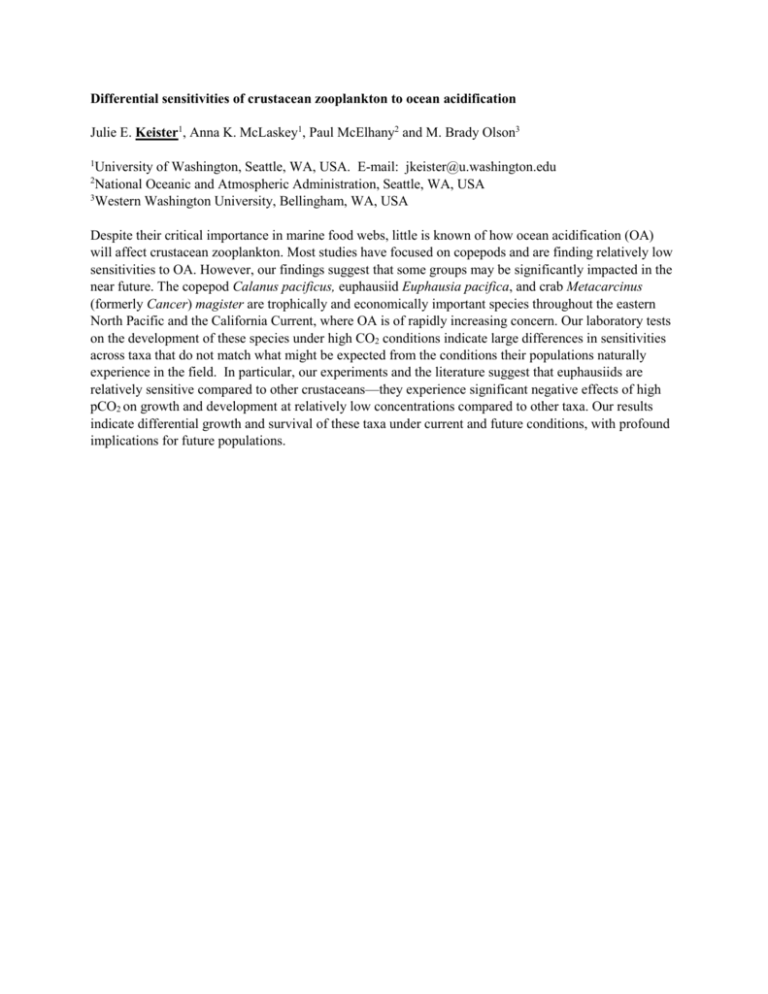
Differential sensitivities of crustacean zooplankton to ocean acidification Julie E. Keister1, Anna K. McLaskey1, Paul McElhany2 and M. Brady Olson3 1 University of Washington, Seattle, WA, USA. E-mail: jkeister@u.washington.edu National Oceanic and Atmospheric Administration, Seattle, WA, USA 3 Western Washington University, Bellingham, WA, USA 2 Despite their critical importance in marine food webs, little is known of how ocean acidification (OA) will affect crustacean zooplankton. Most studies have focused on copepods and are finding relatively low sensitivities to OA. However, our findings suggest that some groups may be significantly impacted in the near future. The copepod Calanus pacificus, euphausiid Euphausia pacifica, and crab Metacarcinus (formerly Cancer) magister are trophically and economically important species throughout the eastern North Pacific and the California Current, where OA is of rapidly increasing concern. Our laboratory tests on the development of these species under high CO2 conditions indicate large differences in sensitivities across taxa that do not match what might be expected from the conditions their populations naturally experience in the field. In particular, our experiments and the literature suggest that euphausiids are relatively sensitive compared to other crustaceans—they experience significant negative effects of high pCO2 on growth and development at relatively low concentrations compared to other taxa. Our results indicate differential growth and survival of these taxa under current and future conditions, with profound implications for future populations.
